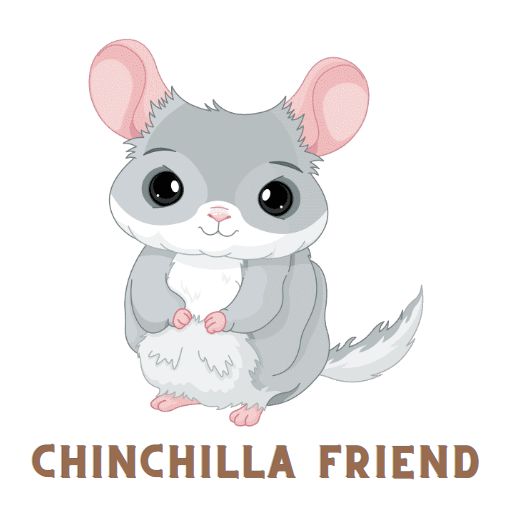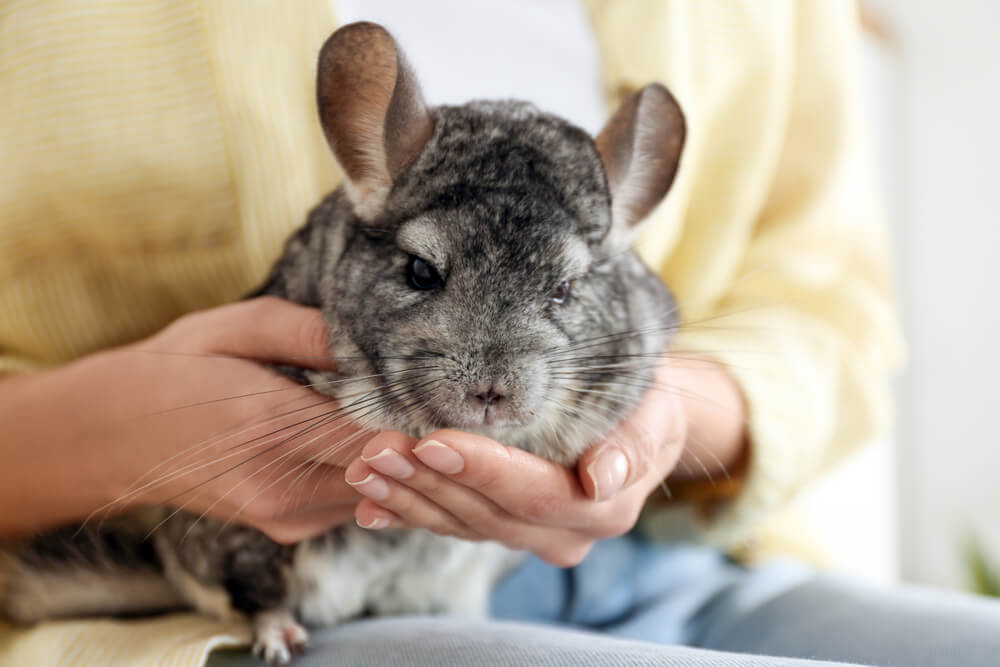Chinchillas are small animals that require a small amount of food to maintain their health. Overfeeding your chinchilla can be very dangerous and will likely cause your chinchilla to become sick in a hurry.
The best way to gauge how much you’re feeding your chinchilla is by watching them eat.
If you know what you’re doing, top-dressing your plants with nuts and seeds and leaving small amounts of dried fruits and vegetables inside the cage for a few days at a time is an easy way to overfeed your chinchilla in the short term without being able to tell in the long term.
A common cause of unexplained weight loss, slow growth rate, a weak or listless appearance, hunched posture, decreased grooming habits or gastrointestinal distress in chinchillas is overfeeding them.
So how much should you feed your pet?
Chinchillas are omnivores that need about 20% protein from plant-based sources (such as nuts, seeds, fruit, and vegetables) in addition to animal proteins (fish or poultry) and fats (such as avocado).
This can be obtained by offering fresh greens in various forms several times per week plus smaller amounts of fruits and vegetables daily throughout the rest of the diet.
The main reason so many owners have trouble maintaining slim figures on a high-fiber diet is that they don’t eat enough high-fiber foods. Feeding too much high-fiber food can cause digestive issues similar to
How much food should I feed my chinchilla?
The key is to not overfeed your chinchilla.
The best way to do this is to watch them eat. If you see your chinchilla rapidly eating, then you know you’re feeding them too much food.
Watch for a full stomach or the occasional burp and if that happens, reduce their food intake.
A good rule of thumb is only to feed your chinchillas what they can consume in four to five minutes before they start pushing the bowl away or running around outside the cage looking for something else to eat.
How much should my chinchilla drink?
Chinchillas drink more when overheating, so it’s important to check their water often.
Make sure you give adequate feedings and fill up their water dish frequently.
They need to stay hydrated because they can only excrete about half the amount of water that they drink each day.
A good way to assess how much your chinchilla drinks is by using a measuring cup or small bowl that holds less than 2 ounces of water.
If your pet’s water dish is large, use a smaller one like a coffee mug or wide-mouth mason jar and fill it up every day so your chinchilla doesn’t have to go without any food while they hydrate themselves at the same time.
The key here is not enough, but not overdoing it either!
What’s a good snack for a chinchilla?
A good snack for a chinchilla is an apple, banana or melon cut up into small pieces with a little bit of water in the bowl.
Some owners like to mix things up and offer chinchillas a variety of different snacks.
In addition to fruit, your pet may enjoy some of their regular food mixed in with low-fat yogurt. Most people tend to avoid giving their pets treats because they are worried about obesity, but if you stick with healthy options, it doesn’t have to be hard on your wallet.
Giving your pet a treat once in a while can have a positive effect on their mood and overall happiness and health.
How long can a chinchilla go without food?
Chinchillas need food every 1-2 hours. You should never leave your pet without food for more than 4-6 hours, and you should always offer fresh water to your chinchilla.
Your pet’s tummy is a storage place that can only hold so much food at a time.
So, when it starts feeling full, it will release some of the food to make room for new food.
When this happens in the wild, they will move on to another area to find food and may abandon their current location if it becomes too risky. Your pet may also stop eating for days if you overfeed them.
This can lead to nutritional deficiencies like anemia.
Conclusion
Make sure you are offering your chinchilla a variety of fresh foods every day, and always provide access to clean water. Avoid overfeeding, and give snacks in moderation. Your chinchilla will be happy and healthy as long as you stick to a regular feeding schedule.














